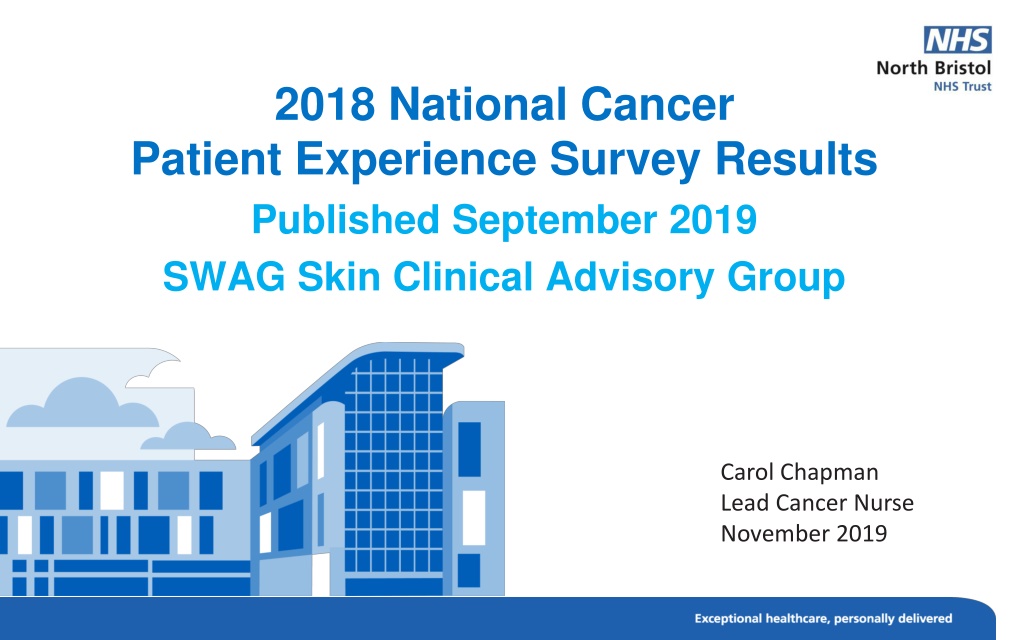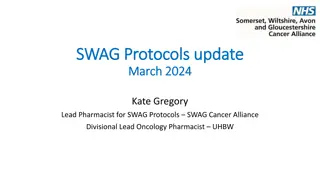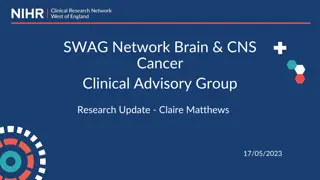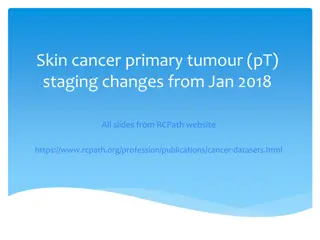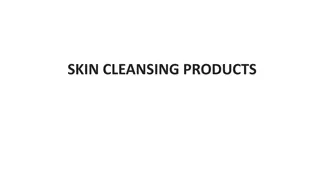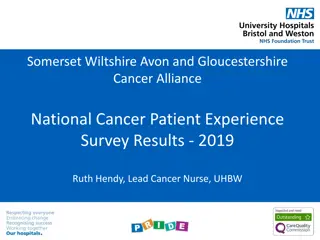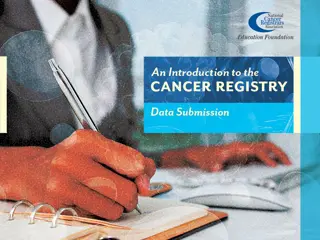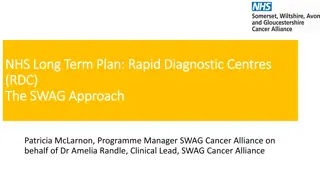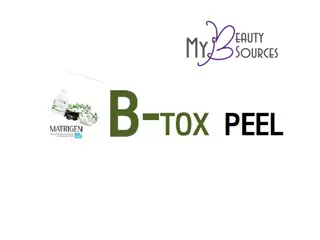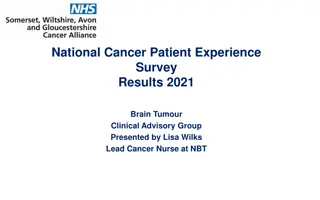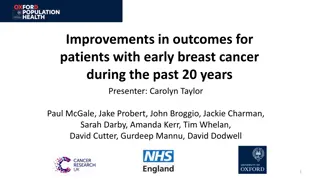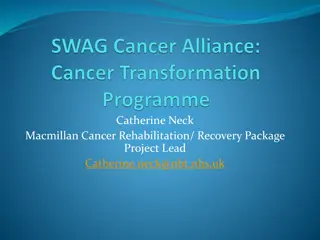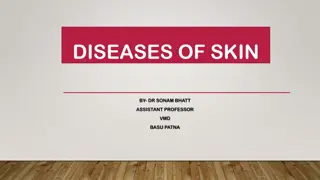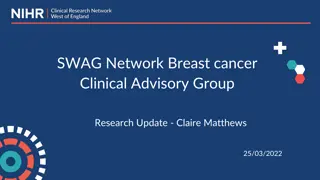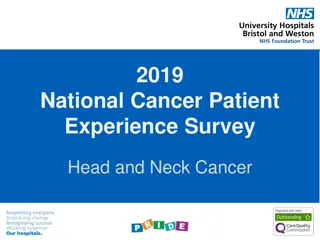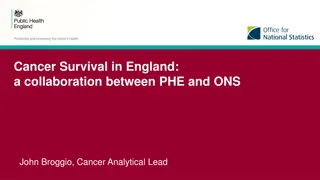National Cancer Patient Experience Survey 2018: SWAG Skin Results Summary
SWAG received high ratings for overall cancer care and skin care in the 2018 National Cancer Patient Experience Survey. Patients reported improvements in overall care, access to support, and involvement in decision-making. However, there was a decline in scores related to waiting times for appointments, diagnostics, and primary care support. Men and white patients rated their experiences higher. Detailed site-specific results were provided for different cancer types. The survey highlighted areas for enhancement in patient care and communication.
Download Presentation

Please find below an Image/Link to download the presentation.
The content on the website is provided AS IS for your information and personal use only. It may not be sold, licensed, or shared on other websites without obtaining consent from the author. Download presentation by click this link. If you encounter any issues during the download, it is possible that the publisher has removed the file from their server.
E N D
Presentation Transcript
2018 National Cancer Patient Experience Survey Results Published September 2019 SWAG Skin Clinical Advisory Group Carol Chapman Lead Cancer Nurse November 2019
Background Annual survey since 2010 Aim to monitor national progress on cancer care and inform service improvements Included all adult patients admitted as an inpatient or day case between April to June 2018 with a cancer related condition (C43 melanoma) 2018 Skin responses UHBristol 27 North Bristol 55 Glos / Chelt 9 Taunton 3 SWAG response rate 69% compared to national rate 64% Yeovil 6 Weston 0 SWAG Skin response rate - 126 participants Bath 3
Background Comparative performance is applied, based on calculation of expected ranges Flagged as outliers if statistical evidence that score deviates from (positively or negatively) scores of Trusts/CCGs of similar same size Site specific results were reported for Breast, Colorectal, Prostate, Haematological, Skin and Urological cancers The results of tumour groups with less than 20 respondents were not reported Delay of 11 months of results being published following questionnaires being sent out
Summary SWAG rated 8.9/10 for overall care for all cancers (national average 8.8) and 9.1/10 for skin (national average 9.0) National improvements in overall care, access to CNS support and being involved in decision making Deterioration in scores on waiting times for first appointment , diagnostics and primary care support (UKONS) Men rated their experience higher than women as did patients who recorded themselves as white Patients comments are also reported but not published
Scores in skin - significantly above the national average for all cancers UH No Question Nat Av all Nat Av Skin NBT Bristol Patient felt they were told sensitively that they had cancer 9 99% 93% 93% 65% Patient given easy to understand written information about the type of cancer they had Patient given practical advice and support in dealing with side effects of treatment Patient definitely involved in decisions about care and treatment 11 84% 89% 90% 84% 14 74% 81% 80% 87% 16 87% 92% 92% 91% Patient found it easy to contact their CNS 18 89% 91% 90% - Hospital staff gave information about support groups 20 89 93 93% - Given clear written information about what should / should not do post discharge Hospital staff gave family or someone close all the information needed to help with care at home 38 91% 97% 96% - 49 67% 82% 82% - As far as you know, was your GP given enough information about your condition and the treatment you had at the hospital? 52 97% 97% 96% 100% Hospital and community staff always worked well together 54 71% 78% 75% 76% Length of time for attending clinics and appointments was right 57 73% 80% 73% 19%
Scores in skin below the national average and nationally low scoring questions (room for improvement) Nat UH No Question Nat Av all NBT Av Skin Bristol Patient told they could bring a family member or friend when first told they had cancer 8 91% 66% 60% 65% Patient definitely told about side effects that could affect them in the future 15 66% 69% 69% - Patient given the name of the CNS who would support them through their treatment 17 91% 87% 85% 87% All staff asked patient what name they preferred to be called by Patient was able to discuss worries or fears with staff during visit 33 72% 64% 69% - 35 59% 63% - - Patient definitely given enough support from health or social services after treatment 51 59% 62% - - Practice staff definitely did everything they could to support patient 53 67% 70% 70% - Patient given a care plan 55 48% 42% 51% Taking part in cancer research discussed with patient 58 16% 16% 12%
